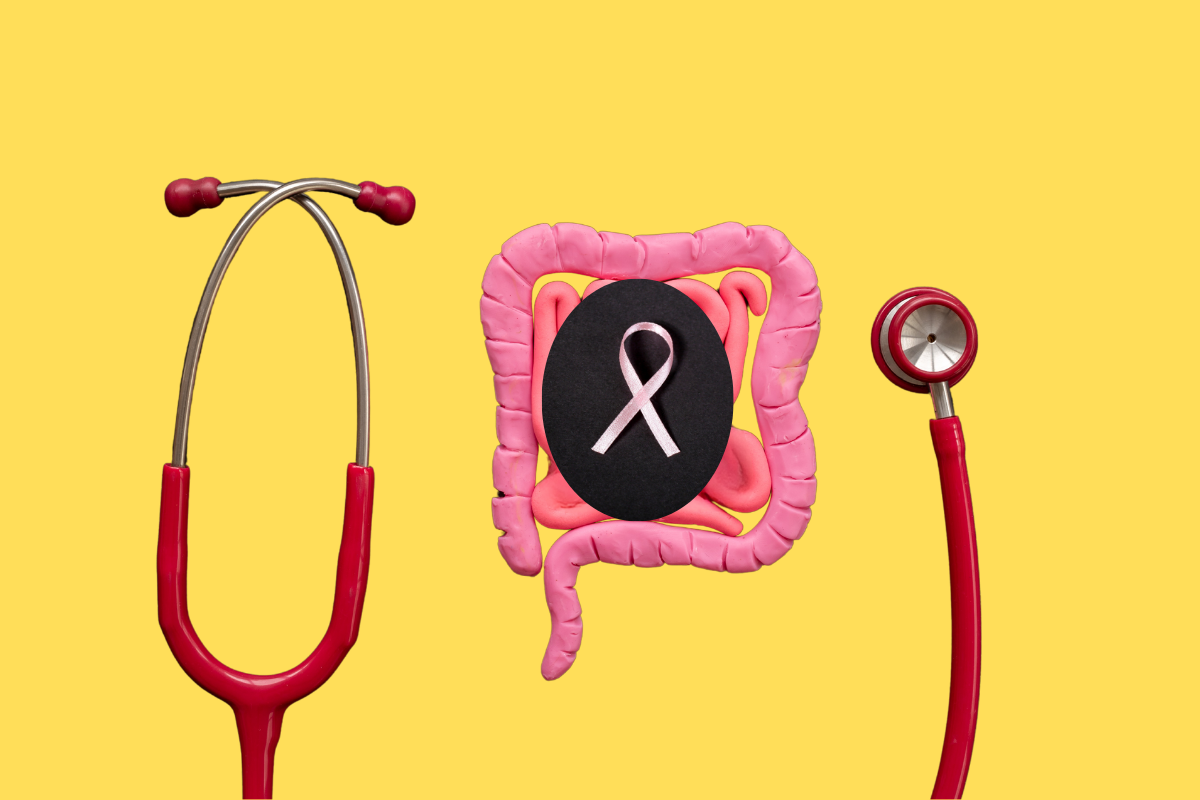The intestinal microbiota, the fascinating ecosystem that populates our digestive tract, plays a crucial role in our overall health. Recent scientific studies suggest that it could be a key player in the prevention and development of breast cancer. In particular, intestinal dysbiosis – an imbalance in the microbiota – is thought to promote chronic inflammation, a recognised factor in tumour progression.
In addition, the microbiota influences the regulation of oestrogens, hormones directly involved in the development of certain breast cancers. A better understanding of this relationship could pave the way for new prevention strategies and improvements to existing treatments. Let’s delve into this fascinating connection between the gut and breast cancer.
Gut microbiota and inflammation: a key factor in breast cancer
Because of its unique composition, the intestinal microbiota plays a fundamental role in maintaining optimal health. Disturbances in the composition of the intestinal flora lead to pathological conditions such as metabolic disorders, inflammatory diseases, cirrhosis of the liver and various carcinomas.
What is the intestinal microbiota?
The intestinal microbiota is a group of micro-organisms (bacteria, viruses, fungi) living in symbiosis in our intestine. It plays an essential role in digestion, vitamin synthesis and immune system regulation. The human intestine is particularly rich in microbial populations. The intestinal microbiota encompasses a repertoire of trillions of microbes residing in the human intestine, including bacteria, viruses, fungi and protozoa. The intestinal microbiome represents the collective genomes of the microbial inhabitants of the intestine. The intestinal microbiome codes for a huge number of genes – more than three million. These ultimately produce a large number of metabolites that are actively involved in numerous physiological functions, such as maintaining intestinal health.
A balanced microbiota, in a state of ‘eubiosis’, promotes good health. On the other hand, a disturbance in this balance, known as dysbiosis, can be the cause of various diseases, including breast cancer.
Dysbiosis and chronic inflammation: a breeding ground for cancer
When the diversity and balance of the microbiota are altered, certain pathogenic micro-organisms take over. This dysbiosis leads to an excessive immune response, generating chronic inflammation.
Inflammation is a key factor in tumour development. It promotes :
- Proliferation of cancer cells
- Angiogenesis (formation of new blood vessels enabling tumours to feed)
- Reduced anti-tumour immune responses
Persistent intestinal dysbiosis could therefore increase the risk of breast cancer by maintaining an inflammatory state conducive to carcinogenesis.
Intestinal microbiota and oestrogens: a crucial hormonal balance
In recent years, researchers have characterised the link between the intestinal microbiota and the hormone oestrogen as the ‘oestrogen-intestinal microbiome axis ‘. This pathway between a population of bacteria and oestrogen hormones appears to be a key regulatory pathway for circulating levels of oestrogen.
Estrogen metabolism and the role of the liver
Before the menopause, oestrogens are mainly produced by the ovaries. Once the menopause is over, other tissues such as adipose tissue, the brain and the hypothalamus take over.
The liver is a key organ in our health; it breaks down substances that are toxic to the body into non-toxic products. The fat-soluble products are then excreted in the bile, then in the intestine, and eliminated in the faeces. Water-soluble products are returned to the bloodstream, which carries them to the kidneys, where they are eliminated in the urine. The liver therefore plays a central role in oestrogen detoxification. Some of the oestrogens are transformed into metabolites before being excreted in the bile and sent to the intestine.
Influence of the microbiota on oestrogen recirculation
High levels of circulating oestrogen are a major risk factor for the development of oestrogen receptor-positive breast cancer in post-menopausal women. Depending on the composition of the microbiota, these oestrogens can be reabsorbed and put back into circulation in the body. A specific enzyme, β-glucuronidase, plays a key role in this process.
American researchers have shown that blocking the activity of this enzyme could reduce the recirculation of active oestrogens and thus reduce the risk of breast cancer.
It should be noted that an unbalanced microbiota could disrupt this process, increasing oestrogen levels and, potentially, the risk of hormone-dependent breast cancer.
A balanced microbiota for a better response to treatment
The intestinal microbiota of breast cancer patients is considerably altered compared with that of healthy individuals, indicating the potential association between certain microbes and the development of breast cancer and therapeutic responses.
Impact of the microbiota on the efficacy of anti-cancer treatments
The intestinal microbiota regulates the effects of chemotherapeutic drugs and radiotherapy in breast cancer. The intestinal microbiota plays an essential role in modulating metabolism, translocation and enzyme modulation. It also plays a role in the immunomodulation of several chemotherapeutic drugs, leading to either activation or inactivation of the drugs in question. The intestinal microbiota therefore has a direct influence on the efficacy of breast cancer treatments, in particular :
- Chemotherapy, by modulating the immune response and absorption of the drugs.
- Immunotherapy, which depends in part on a balanced microbiota to be fully effective.
Preserving the microbiota during treatment
Certain therapies, such as chemotherapy, can alter the bacterial diversity of the microbiota. This can lead to side-effects and reduced therapeutic efficacy. It is therefore vital to preserve the microbiota as much as possible during the cancer treatment phase. Research is currently underway to explore the therapeutic applications of metabolites, probiotics and prebiotics in the treatment of breast cancer. These approaches aim to modulate the intestinal microbiota in order to slow the progression of the disease. In addition, intervention strategies based on dietary modulation and the use of supplements are also being studied to reduce the side effects of anti-cancer treatments and improve patients’ quality of life.
Emerging avenues for preserving or restoring the balance of the microbiota
A number of avenues are currently being explored in the context of a healthy microbiota. The 2 main ones are :
- Probiotics: maintaining beneficial intestinal flora.
- Prebiotics: fibre-rich diet to nourish the good bacteria.
A healthy microbiota could therefore improve the tolerance and efficacy of anti-cancer treatments.
Although many questions remain about the links between the intestinal microbiota and breast cancer, intestinal dysbiosis is now recognised as a key factor in the initiation, development, progression and metastasis of breast carcinoma. One promising avenue of research is to explore whether restoring an intestinal microbial balance could attenuate breast tumorigenesis. All these advances open up new prospects for the prevention and treatment of this disease.
Source:
- https://pmc.ncbi.nlm.nih.gov/articles/PMC9856390/
- https://iedm.asso.fr/
- https://www.tandfonline.com/doi/full/10.1080/19490976.2023.2221452#abstract





